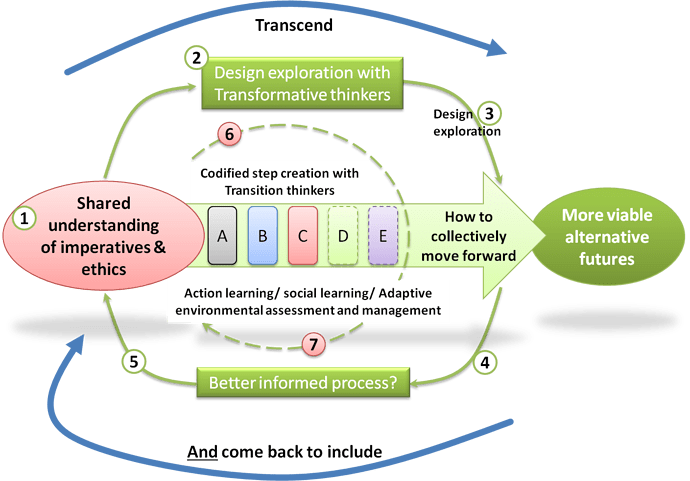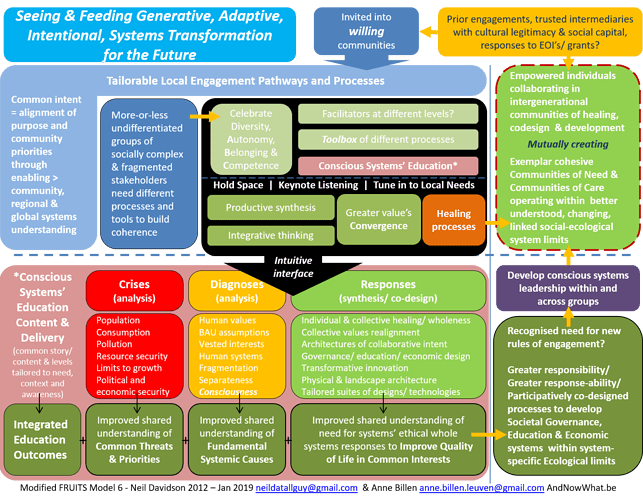Hi again all,
Thanks for your comments here, and for the ongoing conversation on the OGM Zoom catch-up (yesterday for me).
Just dropping by briefly to post the rest of that first diagram by Jantsch, with a couple of my red ellipses thrown in.
You might have picked up already that I’m gently nudging/inviting people to look at the overarching/ underpinning ethical principles that might inform ALL actions at multiple levels within our OGM circles of influence. A key question was asked by @Doug yesterday - what if the starting assumptions/ presumptions are unstated…? We could continue that line of inquiry to ‘what if they are wrong?’… and that one to ‘how do we know they are wrong?’ … and that one, again, to ‘who decides, when there might (always are!) different starting points depending on the worldviews and values of those observing/ commenting?’
As I’ve stated in the first post, I see we are already in social-ecological collapse. I like this quote from Rod Griffith in Tackling Wicked Problems (Brown et al 2010) and have used it in lectures and presentations:
"My passion is the relationship between human societies and their environment, and I see the pace, scale and direction of societal and ecosystem change and the following three tensions as central to sustainability –
-
Between continuous incremental change and discontinuous or step change
-
Between transaction (change within existing assumptions) and transformation (profound change based on new assumptions)
-
Between deliberate intervention and systemic self-adjustment.”
This short thread here has already attracted multiple perspectives on the starting question… so… at what point, ‘above’ all those different perspectives, can we weave and agree the guidance mechanisms for all of us in the current ‘global’ context? How do we do that without compromising any particular voice, but in ways that don’t just have us do “the wrong things, righter”?
So, a few more diagrams to come, but as we know, ‘the energy goes where the attention is’ and ‘the attention goes where the energy is’, so, this diagram asks - where do you see the focus ought to be (systems ethical question)…?
I think we, this collective, with our broad range of perspectives and gifts, have the capability and maturity to aim for some sort of ‘vertical coherence’ not just a place to play or coordinate at only one level.
[Caveat: I know this diagram relates to the language of what some will see as ‘old paradigm’ ways of seeing the world. It was drawn in 1975… and yet much of the world we still need to operate in/ with/ beyond is governed by similar processes and heirarchies… so we will need to interface]
I look forward to your comments. 

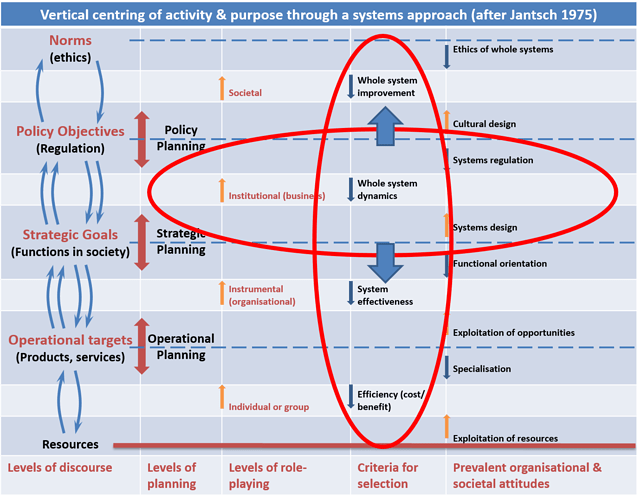
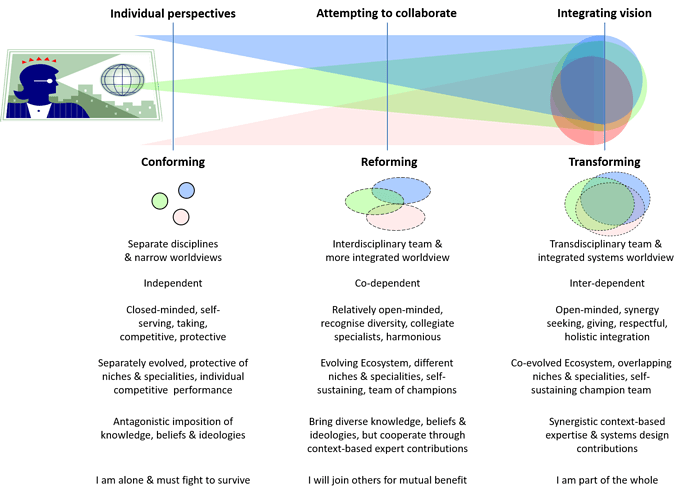
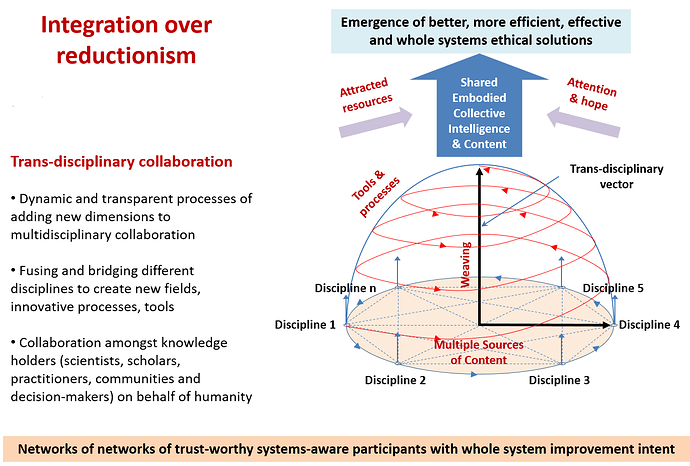
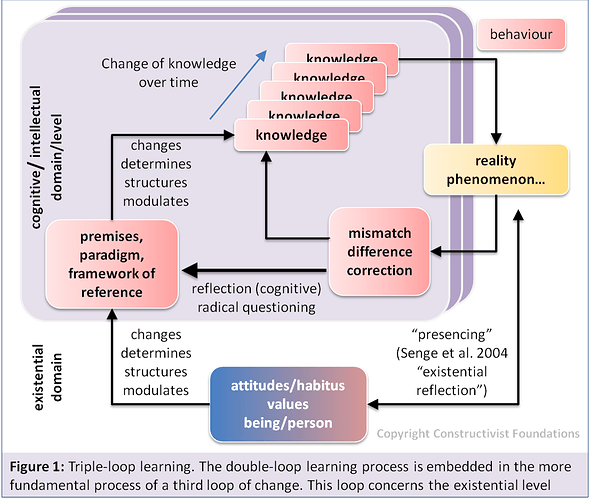
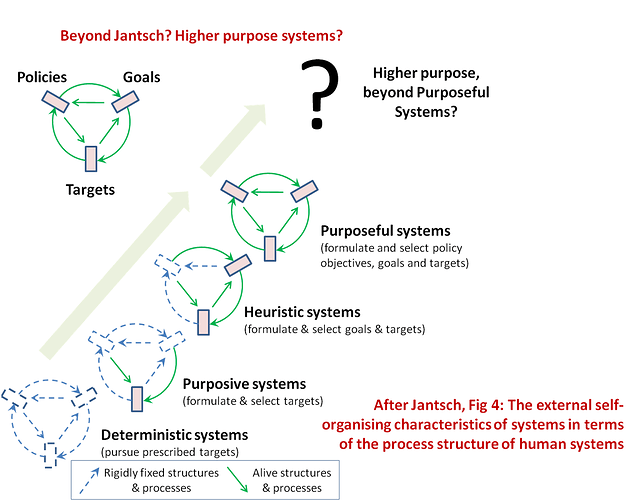
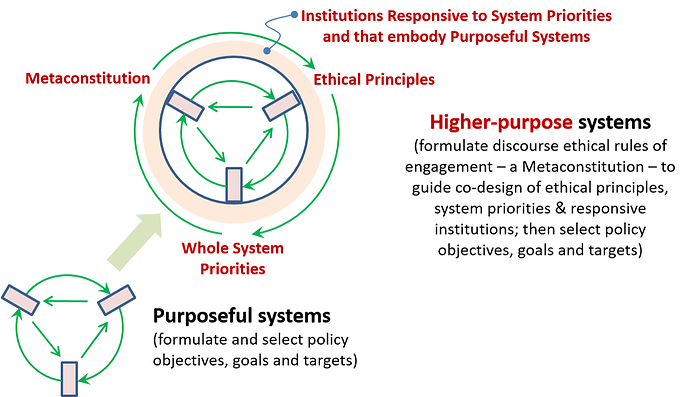
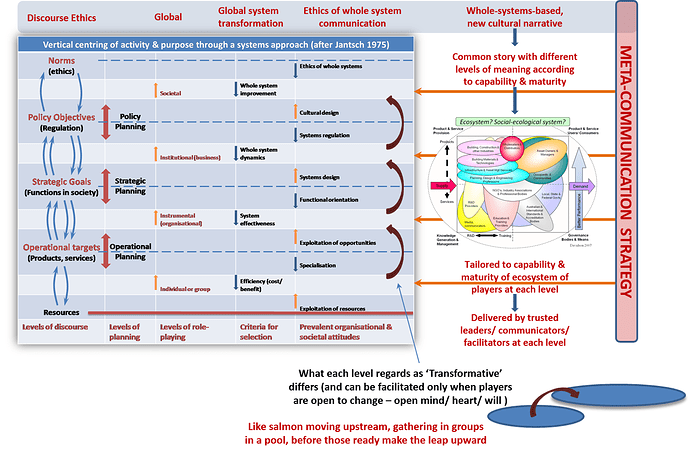
 to think and feel into the ethics of ‘what OUGHT we be doing?’ Given THESE skills, THESE tools, THESE people, in THESE times… if an individual is aware of the systemic issues in the world, do they feel individually compelled to act? If so, how? At what ‘level’ (no criticism - it’s just hard to discuss without recognizing the vertical difference in approach/es and potential leverage if higher system ethics are adopted).
to think and feel into the ethics of ‘what OUGHT we be doing?’ Given THESE skills, THESE tools, THESE people, in THESE times… if an individual is aware of the systemic issues in the world, do they feel individually compelled to act? If so, how? At what ‘level’ (no criticism - it’s just hard to discuss without recognizing the vertical difference in approach/es and potential leverage if higher system ethics are adopted).